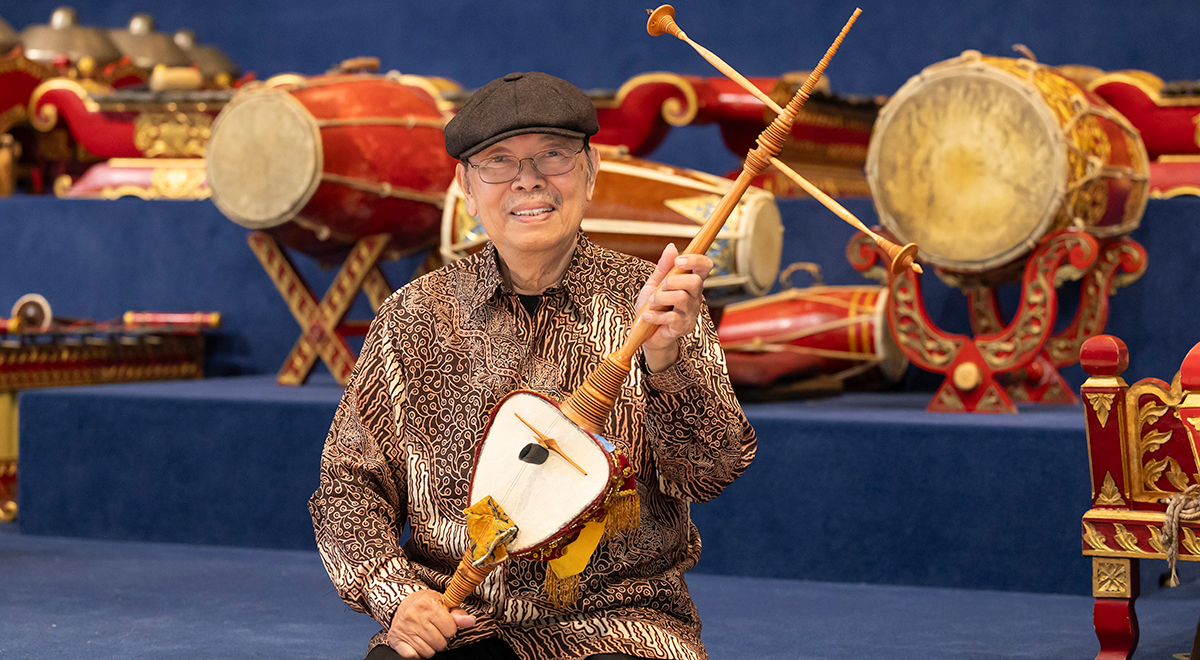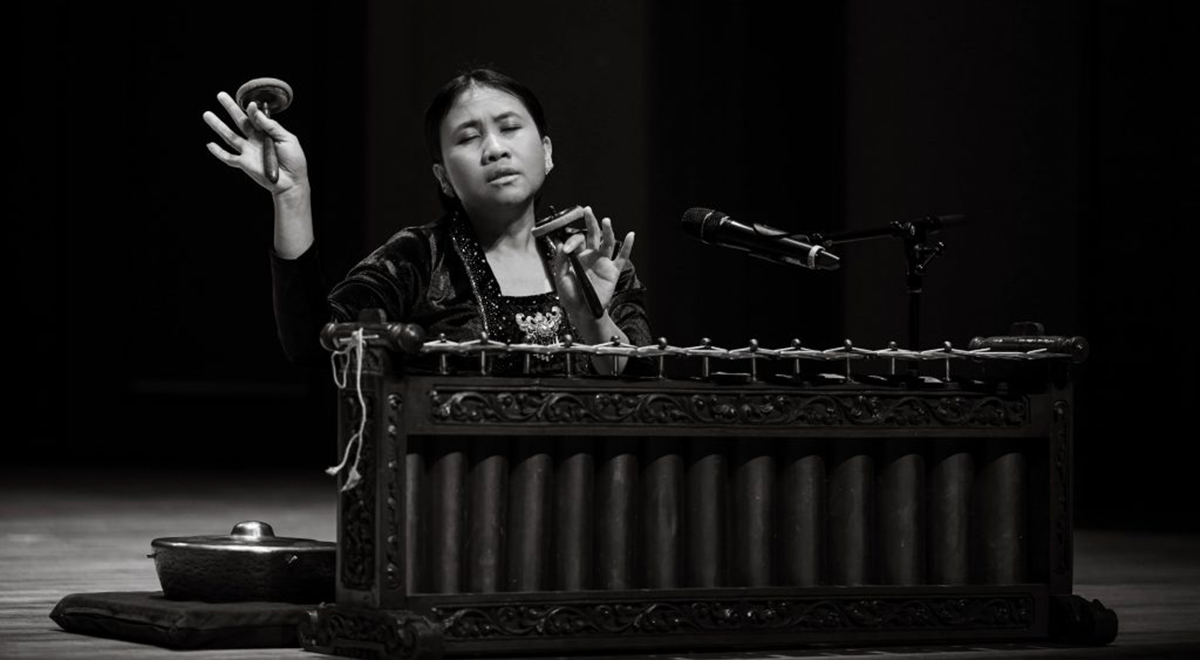Javanese Gamelan Ensemble to premiere works by I.M. Harjito

The Wesleyan Javanese Gamelan Ensemble and guest artists, including Indonesian vocalist Peni Candra Rini, will perform a free retrospective concert of compositions by University Professor of Music I.M. Harjito on Friday, Oct. 4 at 8 p.m. in Crowell Concert Hall. They will perform under the direction of the composer and Sumarsam MA ’76, Winslow-Kaplan Professor of Music.
Since 1983, Wesleyan has owned a set of gamelan instruments from Yogyakarta, Indonesia, a donation to the University from Louise Ansberry. The use of some of the instruments in the gamelan date back to the 12th century. Today, the magnificent orchestra includes colorful bronze gongs and metallophones, wooden xylophones, drums, bowed- and plucked-string instruments, flutes, and vocalists. The gamelan accompanies Indonesian feasts, ceremonies, and dances.
Harjito first taught at Wesleyan in 1975, then joined the faculty in 1984. He began composing in earnest in 1999, said Marc Perlman MA ’78, PhD ’94, an associate professor of music at Brown University. “Harjito has been continually revising, reworking, or adding on to his earliest compositions to the present day,” Perlman said. “In this concert he has chosen to showcase both his oldest and most recent pieces.”
Perlman will present a Music Department colloquium, “Bridging Two Worlds,” about Harjito’s gamelan compositions on Thursday, Oct. 3 at 4:30 p.m. in the Frank Center for Public Affairs.

The concert, “Javanese Gamelan in the World,” will feature the world premiere of two new pieces—the commissioned work Lancaran Amerika, and Lancaran Lingsir—along with eight other compositions by Harjito that range from the traditional Central Javanese style to hybrid, contemporary idioms that place the gamelan in dialogue with other musical traditions.
The concert was organized by Wayne Forrest ’74, MA ’77 and is sponsored by the American Indonesian Cultural and Educational Foundation (AICEF), in collaboration with the Asia Society and Wesleyan, to mark the 75th anniversary of diplomatic relations between the United States and Indonesia.
“We owe Harjito our deepest gratitude for devoting much of his life to teaching Americans about his culture,” Forrest said. AICEF plans to make Lancaran Amerika, composed by Harjito in May 2024, available to all gamelan groups in the United States to perform.
The melody of Lancaran Lingsir came to Harjito in a dream. “I wrote it down as soon as I woke up,” Harjito said of composing the piece in June 2024. “Lingsir means the period after midnight, until about 4 or 5 o’clock, the time I was dreaming.”
A suite of works will feature Harjito’s pieces that incorporate other instruments from around the world, including Scottish bagpipes, the Chinese erhu (a two-stringed bowed musical instrument) and pipa (a plucked string instrument), Irish fiddle, and the Western string quintet.
Harjito’s ideas for collaborative pieces are often inspired by conversations with students about the instruments they play, and exploring how the instruments sound with the gamelan. “He may write out a melody, base a melody on one they created, or ask them to improvise,” said Jennifer Thom Hadley ’84, MA ’86, library assistant for Wesleyan’s World Music Archives and Music Library. For subsequent performances of pieces, Harjito often makes new arrangements depending on the available musicians.
“I thought it was important to showcase the pieces I composed in collaboration with other musicians here at Wesleyan,” Harjito said. Students that have inspired or worked with Harjito on these compositions over the years include the director of Wesleyan’s Chinese Music Ensemble Chia-Yu Joy Lu PhD ’21, Wan Yeung MA ’17, Po-Wei Weng MA ’06, Anna Falkenau MA ’04, Marzanna Poplawska PhD ’08, Scott Wilson MA ’00, and Matthew Welch MA ’01.
A performance of the same program will be presented on Saturday, Oct. 5 at the Asia Society in New York.

